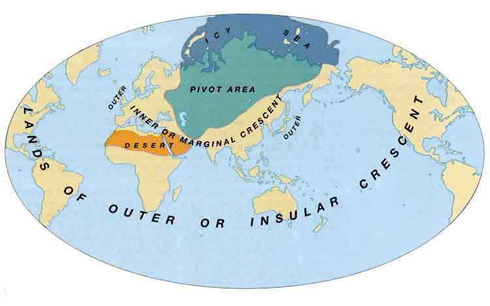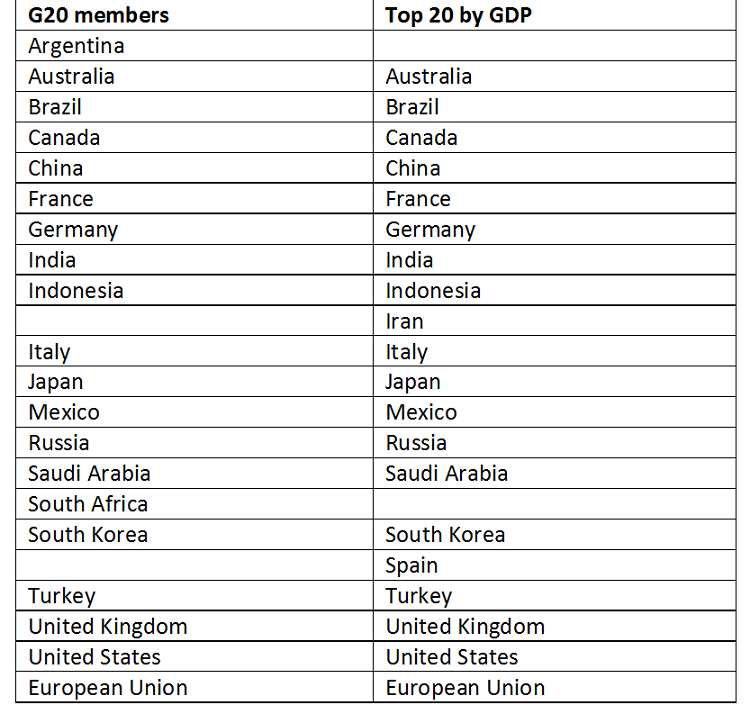 Print This Post
Print This Post- The Strategist - https://www.aspistrategist.org.au -
Near or far? The choices of a top 20 defence nation
Posted By Rod Lyon on November 11, 2014 @ 06:00
 As the wire fences go up in Brisbane for the approaching G20 meeting, I’d like to revisit the topic canvassed by a couple of recent blog posts on what it means for Australia, in defence terms, to be a ‘top 20 nation’. Both Peter Jennings and Andrew Carr have outlined competing visions (here and here) of what it means for Australia to be a top 20 defence player. Both accept our status on the list. But they differ on what that means for our defence and strategic policy. The principal difference between them turns on the extent to which Australia should look out to—and engage with—the wider regional and global strategic environment. Peter’s in favour of doing that; Andrew isn’t. Andrew wants Australia to behave like most other top 20 powers: focusing on its near neighbourhood, and its local, geographic priorities.
As the wire fences go up in Brisbane for the approaching G20 meeting, I’d like to revisit the topic canvassed by a couple of recent blog posts on what it means for Australia, in defence terms, to be a ‘top 20 nation’. Both Peter Jennings and Andrew Carr have outlined competing visions (here and here) of what it means for Australia to be a top 20 defence player. Both accept our status on the list. But they differ on what that means for our defence and strategic policy. The principal difference between them turns on the extent to which Australia should look out to—and engage with—the wider regional and global strategic environment. Peter’s in favour of doing that; Andrew isn’t. Andrew wants Australia to behave like most other top 20 powers: focusing on its near neighbourhood, and its local, geographic priorities. Whichever list we go with, it’s clear that most of those countries already live in contested strategic environments. Halford Mackinder once said that Eurasia was the World Island, and that whoever ruled the World Island ruled the world. Over half of the 17 countries common to both lists live either on the World Island or on the rimlands around it: those powers don’t need to cast their strategic vision far in order to find their strategic priorities.
Whichever list we go with, it’s clear that most of those countries already live in contested strategic environments. Halford Mackinder once said that Eurasia was the World Island, and that whoever ruled the World Island ruled the world. Over half of the 17 countries common to both lists live either on the World Island or on the rimlands around it: those powers don’t need to cast their strategic vision far in order to find their strategic priorities.Article printed from The Strategist: https://www.aspistrategist.org.au
URL to article: https://www.aspistrategist.org.au/near-or-far-the-choices-of-a-top-20-defence-nation/
[1] Image: http://www.aspistrategist.org.au/wp-content/uploads/2014/11/Map_Geopolitic_Mackinder.gif
[2] here: http://www.aspistrategist.org.au/being-a-top-20-defence-player/
[3] here: http://www.aspistrategist.org.au/learning-to-act-like-a-major-power-australia-as-a-top-20-nation/
[4] Image: http://www.aspistrategist.org.au/wp-content/uploads/2014/11/Top-20.png
[5] Eurasia was the World Island, and that whoever ruled the World Island ruled the world: http://en.wikipedia.org/wiki/The_Geographical_Pivot_of_History
[6] Rod Lyon: https://www.aspi.org.au/about-aspi/aspi-staff/fellows/rod-lyon
[7] Wikimedia Commons: http://commons.wikimedia.org/wiki/File:Map_Geopolitic_Mackinder.gif